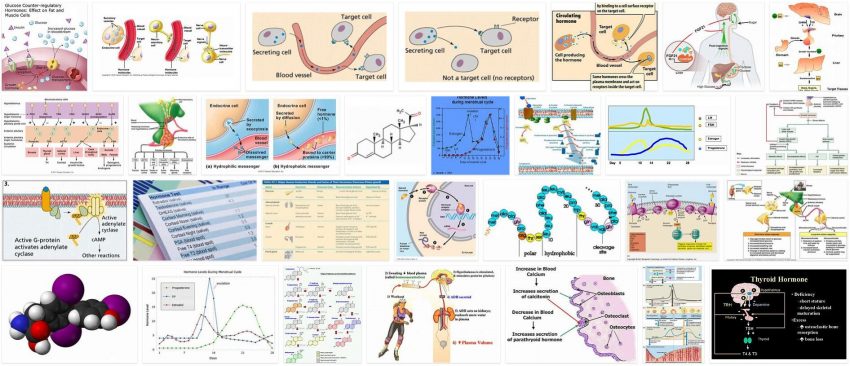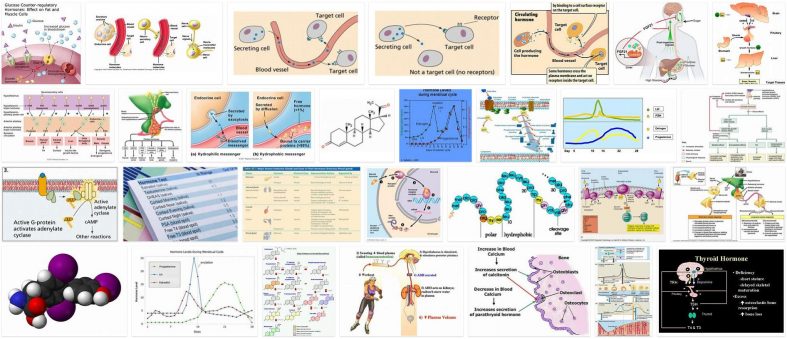The hormone is a chemical produced by glands, specialized tissues and neurons that balance the body’s biological functions, such as metabolism, growth, sexuality, etc.
The hormones are part of a group identified as chemical messengers, to which neurotransmitters belong.
The hormone is a substance produced by some glands of humans, animals and vegetables, transported by blood or sap, which acts by inhibiting or activating some activity of other organs, tissues or cells.
Taking into account the above, many hormones are produced by the glands that make up the endocrine system (pituitary, thyroid, parathyroid, adrenal, pancreas and sex glands) of the human body.
On the other hand, there are natural and synthetic hormones that are used to treat certain disorders or diseases when it is necessary to replace their absence or to cause changes in the cells or throughout the body.
The main hormones of the human body are growth hormone, thyroxine, antidiuretic, adrenaline, insulin, progesterone, testosterone, glucagon, estrogen, among others.
However, the excess or lack of a hormone can be serious, so the endocrinologist indicates to perform medical tests to analyze if there is any hormonal disorder. When hormones do not work properly, there is a hormonal dysfunction, common in men and women related to cases of the sex glands, for example: infertility, weight gain, acne, and, in the case of women, polycystic ovaries , and andropause in men.
Hormonal disturbances are characterized by the deficiency of the endocrine glands, so that they happen to produce a smaller amount of hormones, and, therefore, the treatment is based on hormonal replacement.
On the other hand, the human body is capable of producing a series of hormones that attract pleasure and motivation (dopamine), relieve mood (serotonin) and produce happiness (endorphin), all through sexuality and / or pleasant visualizations, such as landscapes or positive situations for the human being.
The hormone of happiness promotes calm, improves mood, reduces blood pressure, reduces pain, aging, etc.
Finally, the word hormone is of Greek origin hormone that means movement or stimulus.
Types of hormones
- Growth hormone:produced by the master gland, the pituitary gland. It is a hormone that acts on the growth of human beings, to the extent that it develops muscle mass and promotes bone lengthening.
- Chorionic gonadotropin hormone: it is a hormone produced in pregnancy, whose function is to keep the corpus luteum during the beginning of pregnancy, causing it to secrete the hormone progesterone to support the growth of the fetus.
- Luteinizing hormone: also known as lutropin, it is a gonadotropin hormone that in women triggers ovulation and in men it stimulates Leydig cells to produce testosterone.
- Lactogenic hormone: or luteogenic, is one that stimulates milk secretion.
- Thyroxine hormone: also known as thyroid hormone, it is produced by the thyroid gland, it is responsible for various functions: regulation of metabolism, functioning of cardiovascular systems, development and growth of the body and maintenance of body weight.

